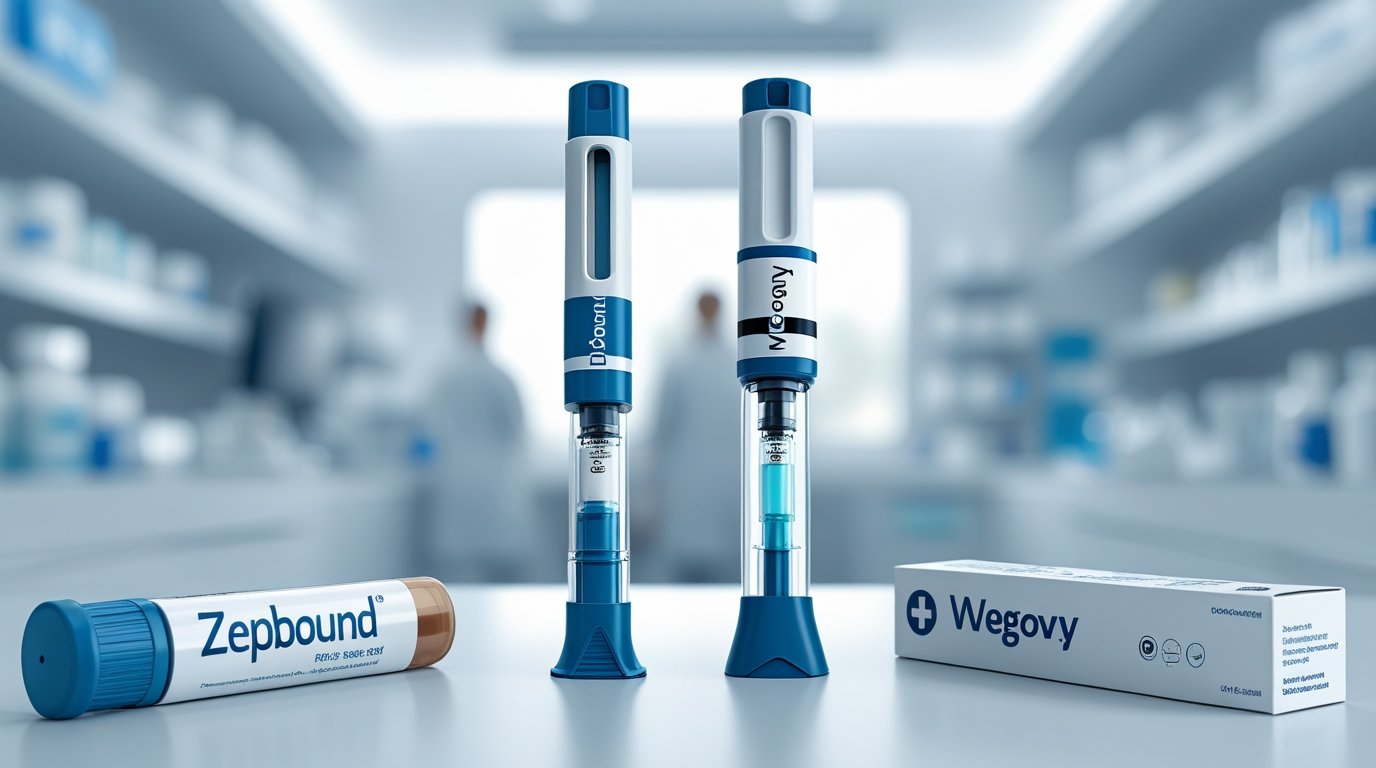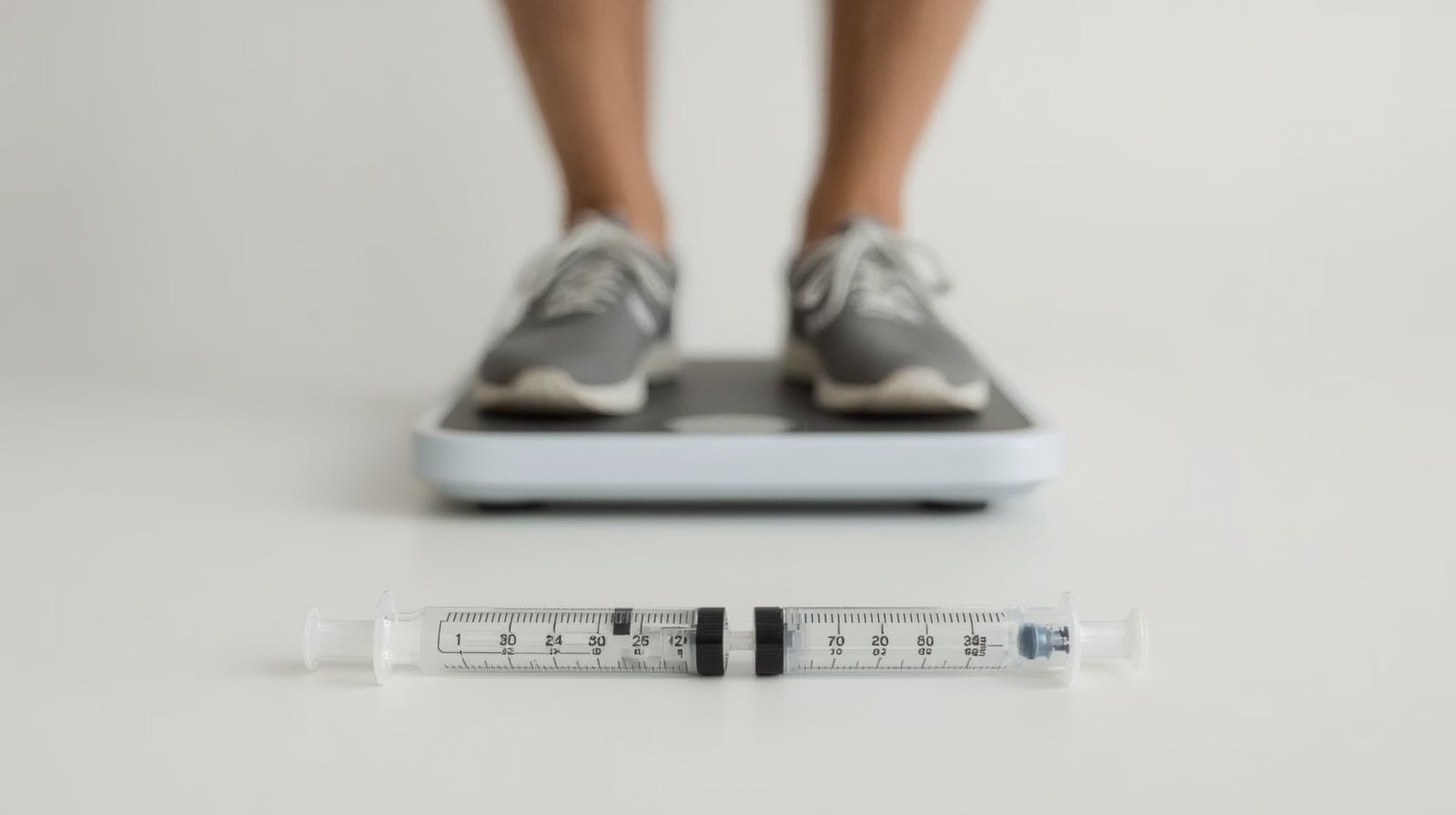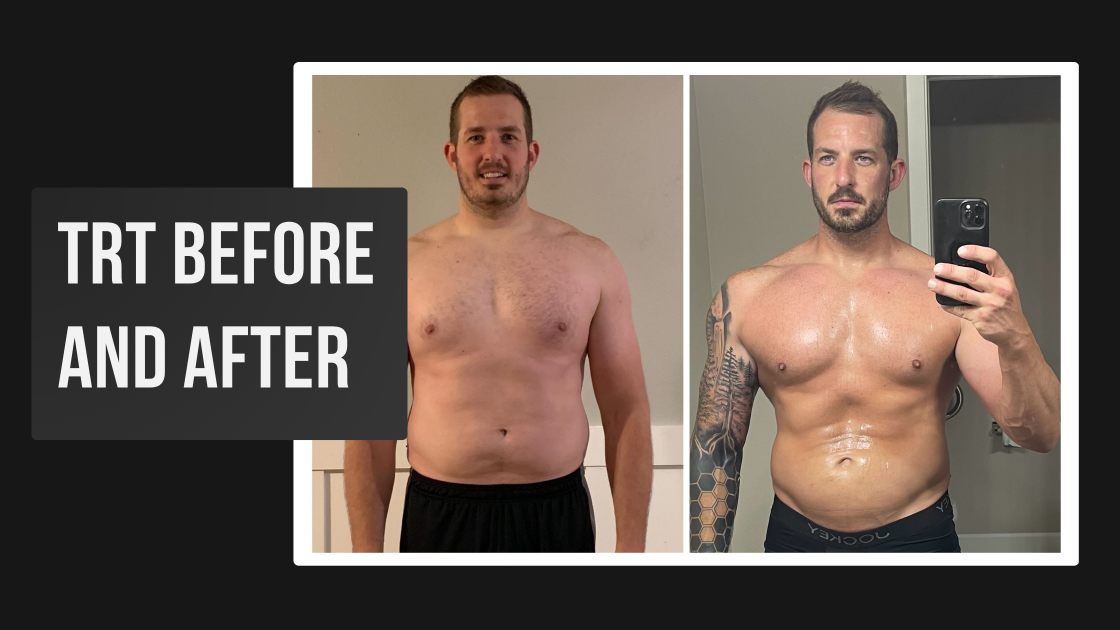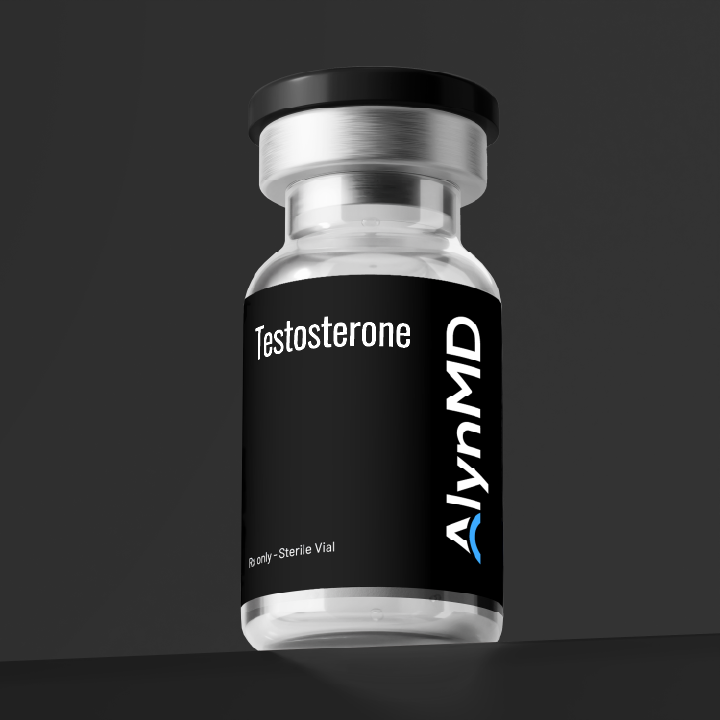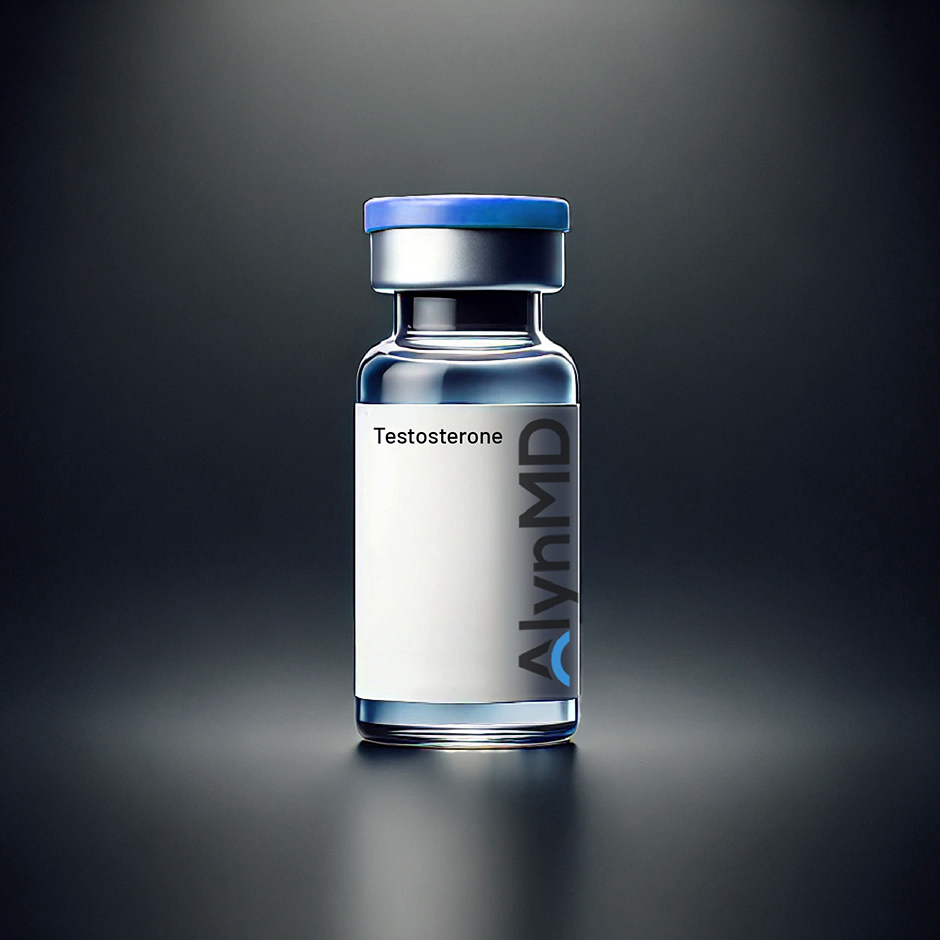
What Are Peptides?
Natural amino acids, known as peptides, are essential for building muscle, repairing tissues, and regulating hormones in the body. Many peptides are naturally occurring and the body produces them to regulate various functions such as metabolism, appetite, and blood sugar. But the benefits of natural peptides do not stop there since they can also help you lose weight via several mechanisms, including:²
- Enhancing metabolism levels to boost calorie-burning
- Improving the production of hormones that influence weight loss
- Boosting human growth hormone (HGH), which stimulates lean muscle growth
- Transmitting signals to the body to burn fat in fat cells before burning calories from glucose; peptides can increase fat oxidation, helping the body utilize stored fat for energy
- Influencing blood sugar levels
- Decreasing appetite
- Slowing stomach emptying, which causes a feeling of fullness and slows digestion
Peptides work in harmony with the body’s natural processes to support sustainable weight loss. They also help maintain energy balance by influencing metabolism and appetite regulation.

How Peptides Work
Peptides are short chains of amino acids that play a vital role in the body’s natural processes, especially when it comes to weight management and metabolic health. In the context of weight loss, peptides work by targeting several key mechanisms that influence body weight, fat metabolism, and appetite regulation.
One of the primary ways peptides promote weight loss is by enhancing insulin sensitivity, which helps the body regulate blood sugar levels more effectively. By improving how the body responds to insulin, peptides can reduce glucose production in the liver and help maintain stable blood sugar. This not only supports overall health but also decreases the likelihood of excess glucose being stored as body fat, making it easier to lose weight and maintain weight loss over time.
Peptides also play a significant role in fat metabolism and fat burning. Certain peptide medications, such as GLP-1 receptor agonists, mimic the effects of natural hormones that signal the body to burn fat for energy rather than storing it. This shift in energy metabolism can lead to a reduction in body fat and support significant weight loss, especially when combined with healthy lifestyle interventions like diet and exercise.
Another important function of peptides is their ability to reduce appetite and control food intake. By influencing the hormones that regulate hunger and satiety, peptides help people feel fuller for longer, making it easier to stick to a calorie deficit and achieve weight reduction goals. This appetite-suppressing effect is particularly beneficial for those who struggle with cravings or overeating during their weight loss journey.
In addition to supporting fat loss, peptides can help increase lean muscle mass, which is crucial for maintaining a healthy metabolic rate. Building and preserving muscle mass not only improves body composition but also helps the body burn more calories at rest, further supporting long-term weight management.
The effectiveness of peptides for weight loss has been demonstrated in numerous clinical trials. FDA-approved peptide medications like semaglutide and liraglutide have shown that participants can achieve significant weight loss—sometimes up to 15% of their starting body weight—when these drugs are used as part of a comprehensive weight management plan. These receptor agonists are considered next-generation antiobesity medications and are increasingly used in clinical practice to treat obesity and related health conditions.
For best results, peptides are often combined with other weight loss medications and lifestyle changes, such as a balanced diet and regular physical activity. This comprehensive approach not only helps people lose weight but also supports improvements in metabolic health, making it easier to maintain weight loss and achieve long-term health goals.
While peptides offer a promising solution for those seeking to lose weight and improve their overall health, it’s important to remember that they are most effective when used as part of a holistic approach. Working with a healthcare professional ensures that peptide therapy is tailored to your individual needs, maximizing benefits while minimizing risks.
In summary, peptides work by regulating blood sugar levels, enhancing fat metabolism, reducing appetite, and supporting lean muscle mass. When combined with healthy lifestyle interventions, peptide medications can help people achieve significant weight loss, improve metabolic health, and maintain their results for the long term.
What Are Peptide Drugs?
Peptide drugs were initially developed to treat diabetes because they lower blood sugar, but people began noticing how these medicinal weight loss peptides helped them lose weight. These drugs work by enhancing insulin secretion in response to food intake. One group of drugs—glucagon-like peptide-1 (GLP-1)—results in dramatic weight loss. Another important peptide, glucose dependent insulinotropic polypeptide (GIP), also plays a role in insulin secretion and weight management, and is targeted by some newer medications for enhanced metabolic effects.
However, successful weight loss from taking a peptide for weight loss can be influenced by several variables such as:
- Type of diet
- Lifestyle changes (e.g., diet and exercise)
- Weight gain due to factors such as age or post-pregnancy
- Family history of metabolic or weight related health condition
- Personal health history
- Response to the medication
Best Peptides for Weight Loss
Several types of GLP-1 receptor agonists are currently prescribed for weight loss.
Semaglutide – This GLP-1 receptor agonist is one of the best peptides for weight loss. Semaglutide is used to treat type 2 diabetes; one form of semaglutide is used to treat obesity via a weekly injection. Semaglutide is a weight loss medication prescribed off-label (a drug that’s given for a condition other than what the FDA approves it for). In clinical trials, participants taking semaglutide lost significantly more weight—on average, up to 15% of their initial body weight compared to the control group. These studies included a placebo group to accurately measure the true effect of the medication. Semaglutide lowers appetite, helps control cravings, increases a feeling of fullness (satiety), and improves insulin sensitivity. Combining peptides like semaglutide with lifestyle changes, such as diet and exercise, can further enhance weight loss outcomes. Additionally, losing weight with semaglutide can reduce the risk of cardiovascular disease and other obesity-related health issues.*
*Increased insulin sensitivity allows the body’s cells to more efficiently utilize glucose, lowering blood sugar.
Liraglutide – Liraglutide is a GLP-1 receptor agonist given specifically for weight loss. Like semaglutide, liraglutide increases satiety, curbs appetite, and improves insulin sensitivity. As a once-per-day injection, liraglutide lowers appetite and helps promote weight loss and weight management for at least 12 months. Liraglutide is known to help keep the weight off for about a year, and its peak action occurs around week 60.⁴
Uses of Tirzepatide
Tirzepatide is a GLP-1 receptor agonist and a once-weekly injection used to treat type 2 diabetes, but given as an off-label drug to treat obesity. Tirzepatide is used for suppressing appetite, boosting satiety, and improving insulin sensitivity.
How To Get Weight Loss Peptides
To learn how to qualify for a weight loss peptide prescription, consider Alyn MD, a telehealth and national wellness clinic that offers various GLP-1 receptor agonists. Eligibility for weight loss peptides is often determined by your body mass index (BMI) and whether you have a weight related health condition. We specialize in telehealth services for weight management, supporting longevity, and sexual health.
Our simple process includes completing an online form, selecting the peptide weight loss program you’d like, consulting with one of our physicians online, and, if approved, having one of our partnered pharmacies send you your prescription and supplies.

Conclusion
If you’re ready to take control of your weight and achieve long-term success, you can buy GLP-1’s through Alyn MD today. Our dedicated team of professionals will guide you through every step of the process, ensuring you receive the highest quality care and support. With our convenient telehealth services and a proven track record of weight management solutions, there’s no better time to start your journey. Purchase GLP-1’s now and experience the transformative benefits for yourself!
Frequently Asked Questions
Do peptides really work for weight loss?
Some peptides may aid in weight loss by influencing appetite, metabolism, or fat breakdown. However, individual responses can vary, and their effectiveness may depend on factors like dosage, diet, and lifestyle habits.
What’s the best peptide for weight loss?
One drawback of peptides is that their effectiveness can vary widely among individuals. While some people may experience positive results in terms of weight loss or other health benefits, others may not see the same effects. Additionally, peptides may come with potential side effects or risks, especially if used improperly or without medical supervision. It’s essential to consult with a healthcare provider before using peptides to ensure they are appropriate for your individual needs.
Do you need a prescription for peptides for weight loss?
In many cases, peptides for weight loss require a prescription, especially if they are classified as medications or regulated substances. It’s important to consult with a healthcare provider or a qualified professional before using peptides for weight loss.
What are the side effects of using peptides?
Common side effects of peptides for weight loss may include nausea, digestive issues, headache, or changes in appetite. Additionally, improper use or dosage of peptides can lead to more serious side effects or health risks, highlighting the importance of medical supervision and proper dosing.







